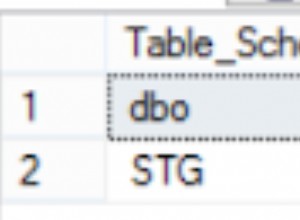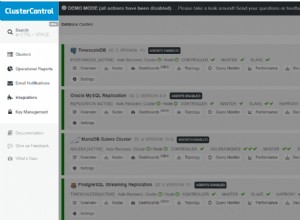Puoi semplicemente ottenere questi tipi tramite Maven Central usando la dipendenza Tipi di ibernazione:
<dependency>
<groupId>com.vladmihalcea</groupId>
<artifactId>hibernate-types-52</artifactId>
<version>${hibernate-types.version}</version>
</dependency>
Se esegui facilmente il mapping di Java Enum a un tipo di colonna PostgreSQL Enum utilizzando il seguente tipo personalizzato:
public class PostgreSQLEnumType extends org.hibernate.type.EnumType {
public void nullSafeSet(
PreparedStatement st,
Object value,
int index,
SharedSessionContractImplementor session)
throws HibernateException, SQLException {
if(value == null) {
st.setNull( index, Types.OTHER );
}
else {
st.setObject(
index,
value.toString(),
Types.OTHER
);
}
}
}
Per usarlo, devi annotare il campo con il @Type di Hibernate annotazione come illustrato nell'esempio seguente:
@Entity(name = "Post")
@Table(name = "post")
@TypeDef(
name = "pgsql_enum",
typeClass = PostgreSQLEnumType.class
)
public static class Post {
@Id
private Long id;
private String title;
@Enumerated(EnumType.STRING)
@Column(columnDefinition = "post_status_info")
@Type( type = "pgsql_enum" )
private PostStatus status;
//Getters and setters omitted for brevity
}
Questa mappatura presuppone che tu abbia il post_status_info tipo enum in PostgreSQL:
CREATE TYPE post_status_info AS ENUM (
'PENDING',
'APPROVED',
'SPAM'
)
Ecco fatto, funziona come un incantesimo. Ecco un test su GitHub che lo dimostra.




